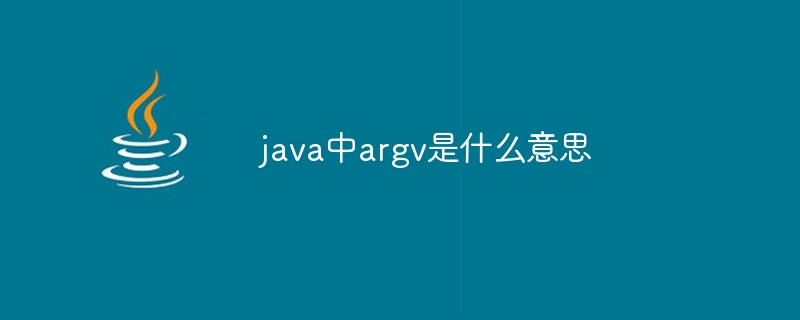
argv in Java is a special variable that stores the parameters passed in when running the application from the command line. Declared as a String[] type in the main() method, the parameters can be accessed by their element index, argv[0] is the first parameter, and so on.

What is argv in Java?
argv is a special variable in Java applications used to store command line arguments. When you run a Java application from the command line, you can pass one or more arguments, which can be accessed by the argv array.
How to use argv
To access the argv array, declare it as String[] type in the main() method. For example: Element index of
<code class="java">public static void main(String[] argv) {
// argv[0] 将包含第一个命令行参数
// argv[1] 将包含第二个命令行参数
// ...
}</code>argv The element index in the
argv array corresponds to the order of the command line arguments passed to the Java application. argv[0] will contain the first argument, argv[1] will contain the second argument, and so on.
Example
The following example Java application takes two parameters from the command line and prints them:
<code class="java">public static void main(String[] argv) {
if (argv.length >= 2) {
System.out.println("第一个参数:" + argv[0]);
System.out.println("第二个参数:" + argv[1]);
} else {
System.out.println("未提供足够的参数。");
}
}</code>When you run from the command line When applying this, you can provide arguments using the following command:
<code>java MainClass arg1 arg2</code>
This will generate two elements in the argv array: argv[0] for "arg1" and argv[1] for "arg2".
The above is the detailed content of What does argv mean in java. For more information, please follow other related articles on the PHP Chinese website!




